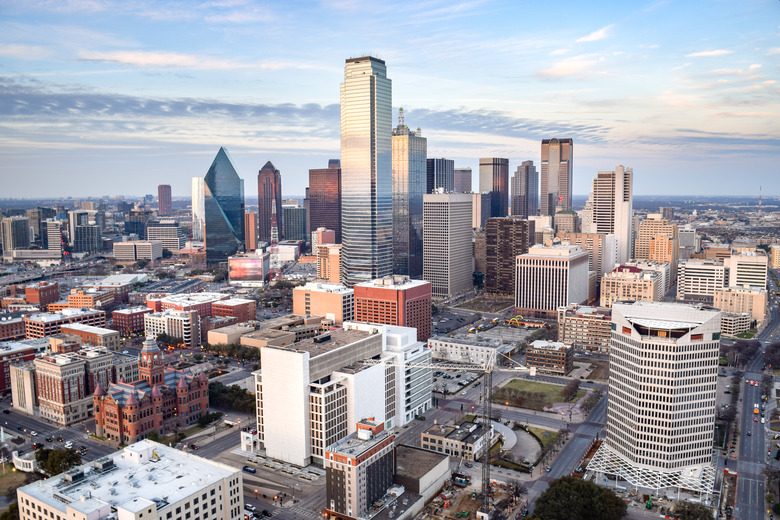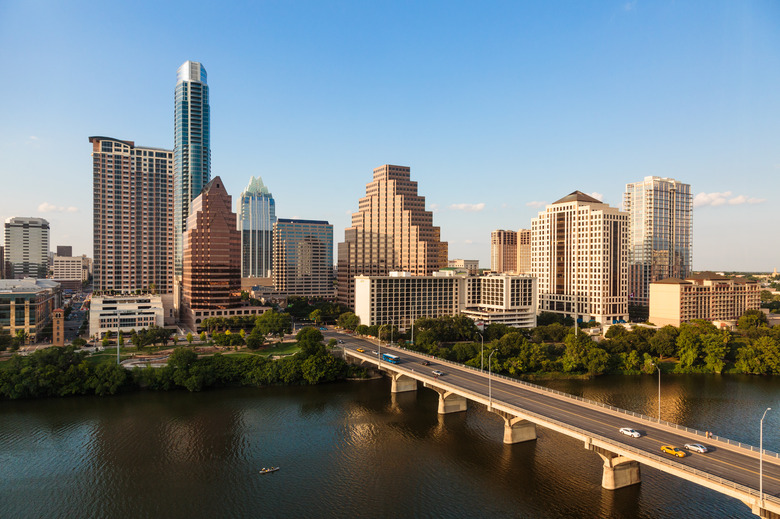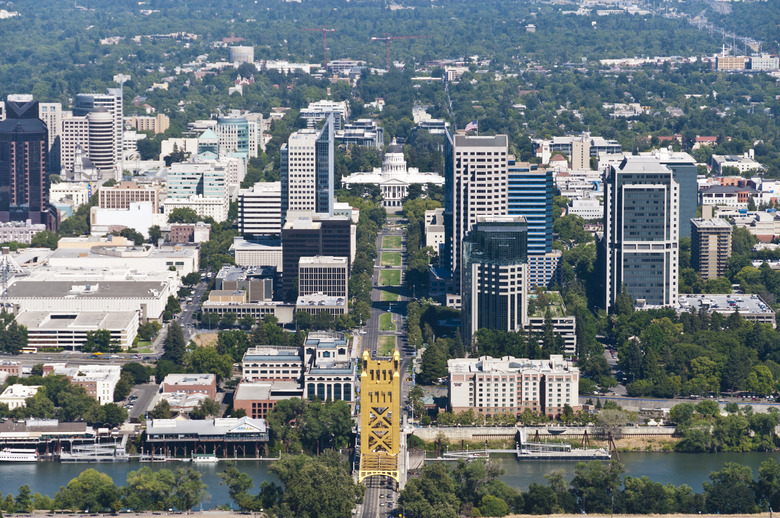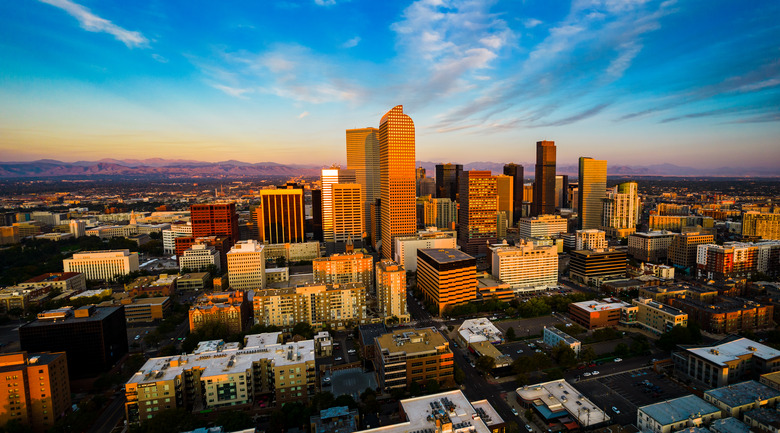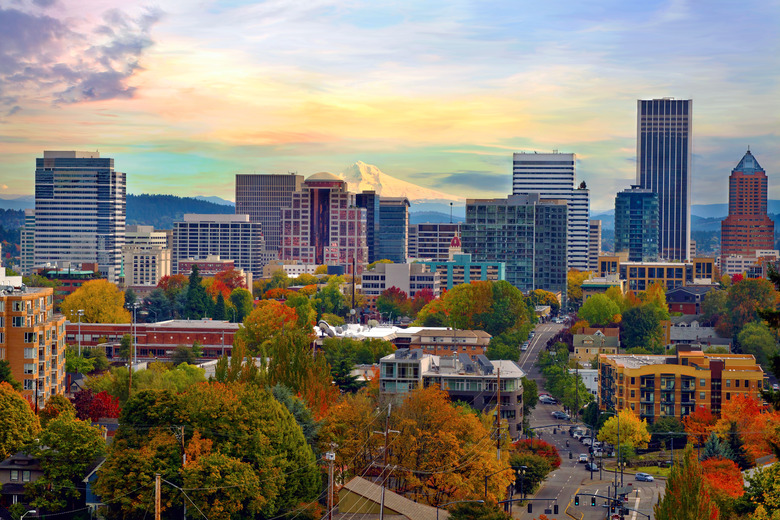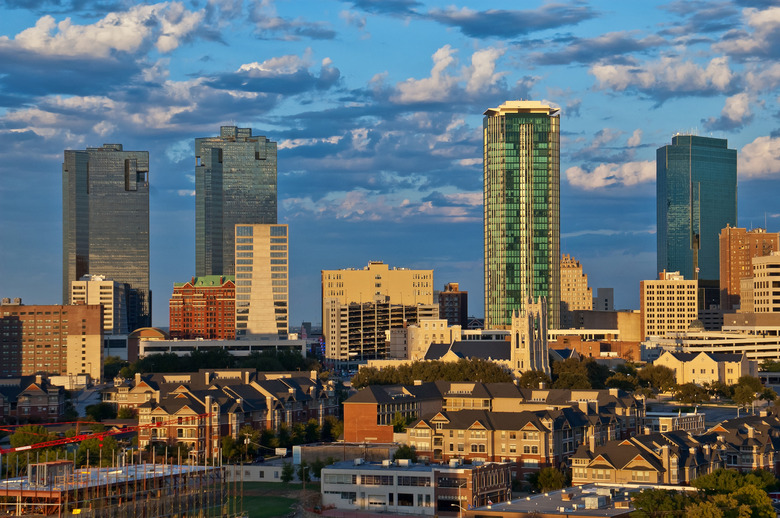Looking To Relocate? Here Are The 8 Cities Experts Think Will Become More Affordable
It's been a hard couple of years for homebuyers, who have found themselves facing higher-than-normal home prices, a shrinking selection of housing inventory from which to choose, and most recently, rising interest rates. Fortunately, financial experts believe at least one of those issues is about to become a thing of the past. According to recent findings from MarketWatch, housing prices have actually begun to decline in several markets around the United States.
"Home prices are being slashed like Crazy Eddie's discount mattresses during a holiday weekend," explains Jennifer Baptisa, a licensed real estate agent out of Massachusetts, adding that sellers are having to come to terms with the fact that the market isn't the same as it was six months ago — or even six weeks ago.
"While this might be upsetting to sellers, realistically, they are still getting top dollar for their home. You might not get $50,000 over asking, but they are getting a good, fair market price for their home."
If you're not opposed to the idea of making a major move in the quest to find a new home, these are some of the markets the pros say are about to become a whole lot more affordable in the coming months.
1. Las Vegas, Nevada
1. Las Vegas, Nevada
According to the report, homes listed for sale in the popular desert town have finally begun to come down in price, with homes that closed in July and August having sold for less than their original list price. But fluctuating prices seem to be a pattern for Sin City. "Las Vegas and Bakersfield (California) took it on the chin in 2008 much more than markets that hadn't risen as much before the mortgage meltdown," explains Tony Mariotti, CEO at RubyHome.
2. Phoenix, Arizona
2. Phoenix, Arizona
Part of the Sun Belt, this Arizona hub has a lot of the desert appeal of Las Vegas without quite as much of the glitz and the glam. According to Newsweek, homes in Phoenix have been closing for less than asking for the past two months, with the average sale price now 2.8 percent less than it was just two months ago. While that sounds like great news in a city that has been largely too expensive for buyers to move to, it's worth noting that prices are still 11.6 percent higher than they were in 2021.
In general, Mariotti says that, in general, areas that benefitted the most during the pandemic have "already hit a little turbulence." Fortunately for buyers, areas like this, where prices are still above their pre-pandemic marker, are finally starting to fall into more affordable territory.
3. Austin, Texas
3. Austin, Texas
The first of two towns on this list in the Lone Star State to show signs of cooling down is Austin, where buyers have seen a 12-percent drop from April to June, according to the Texas Tribune, and prices are expected to continue cooling into next year. That's likely going to be very enticing to buyers who have always wanted to call Texas home.
Mariotti says prices are cooling in general, but we haven't yet see the broad, massive decline in home prices. That may be why some of these once overinflated markets are some of the first to see a change.
4. Sacramento, California
4. Sacramento, California
This summer, Redfin declared that the once white-hot housing market of Sacramento had finally begun cooling off. In fact, things had gotten so chilly in this particular real estate market that it was named one of the five most rapidly declining housing markets in the country, according to its July report. Another Sun Belt favorite, this news will be music to the ears of big-budget house hunters who only needed the market to make a shift before they could finally afford to buy a house.
"During the pandemic, Sacramento and San Diego benefited from the 'big city exodus' of white-collar and tech workers," Mariotti explains. "Great climates, good cultural opportunities, and low prices compared to San Francisco and Los Angeles created a trifecta of desirability." That caused home prices to surge more here than in other cities, which Mariotti says may have contributed to the large correction. "... What I've observed from past price corrections is a high correlation between the steepness of the increase and the steepness of the decrease," he adds.
5. Denver, Colorado
5. Denver, Colorado
This close-to-the-mountains town has a lot going for it: picturesque views, plenty of sunshine, and now more affordable housing. The average Denver home sold for more than 1.5 percent less than asking in August. While that number may not seem like a lot (especially when compared to the double-digit drops in other markets), when you take into consideration the fact that the average home sold for around $660,000 this summer, that discount really adds up.
Though markets are turbulent, we have yet to see whether it's just a sign that markets are adjusting or if the bottom is set to fall out. "The Federal Reserve's interest rate moves and consumer sentiment over the next few quarters will determine whether that bumpy turbulence becomes a gut-wrenching air pocket," Mariotti tells Hunker. For areas like Denver that are only experiencing single-digit drops, the reset may have only just begun.
6. Portland, Oregon
6. Portland, Oregon
People considering the Pacific Northwest may be happy to learn that it may be a little cheaper (and easier) to buy a home there. In June, the Regional Multiple Listing Service said that while new listings were up 11.5 percent from the month before, pending sales were down 17.9 percent, meaning that more people are trying to sell their home in this area so there is less competition for hopeful buyers.
"We see an uptick in once-discouraged buyers returning to us, mostly first-time home buyers and folks moving to the Portland/Vancouver area looking at mid-priced houses," Mariotti tells Hunker. "Over the last couple of years, when sellers routinely got a couple dozen bids, our well-prepared, pre-approved buyers (who even had cash to bid in amounts over the asking price) still had a low probability of winning the deal."
These ongoing disappointments became a recipe for disaster, prompting even well-qualified borrowers to take a break. The rise in interest rates means these buyers can afford a smaller home than what they originally wanted, but they are just happy to be able to buy a home without a bidding war, according to Mariotti.
7. Dallas-Fort Worth, Texas
7. Dallas-Fort Worth, Texas
The second Texas town on this list presents a win-win situation for buyers looking to have their pick of properties when they move. Not only have home prices made a double-digit decline in Dallas-Fort Worth, but there's also been an increase in the amount of inventory being placed on the market. That means there are now more properties from which to choose (and likely less competition) as well as a significant drop in asking prices, so you're likely to get a better deal when you finally find the perfect spot to call your own.
8. San Diego, California
8. San Diego, California
The second California town on this list is also part of the massive cooling being felt across the state. San Diego was ranked number eight on the list of towns that had seen a month-over-month market correction that made homes more affordable to prospective buyers. Like Sacramento, San Diego properties still cost more than the national average — they're priced a whopping 119 percent higher than the U.S. average, according to one report — which still puts them largely out of reach for many people.
What to Know If You're Going to Relocate
What to Know If You're Going to Relocate
It may sound appealing to take advantage of these changing markets, but there are a few things you should know about making a major move. "You get what you pay for, so make sure you really like what the area offers, not just what it looks like," Andrew Westphal, a real estate agent with Corcoran NYC, tells Hunker, adding that you want to be especially mindful of whether or not your new town will have access to things like schools, supplies, transportation, and enjoyable social interactions.
Moving to a new place that you've never been to (or aren't as familiar with) because the housing market has cooled is only a good deal if you'll be happy once you get there.
